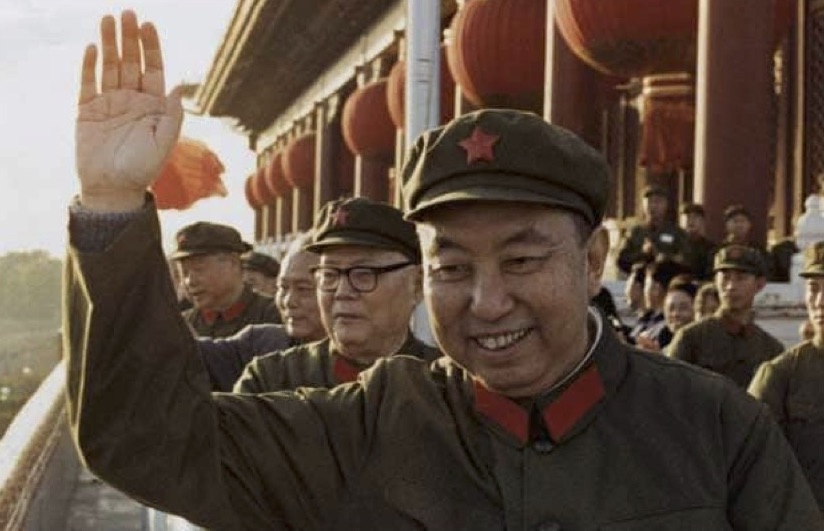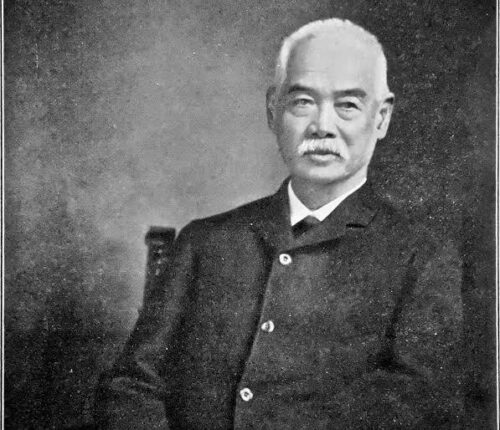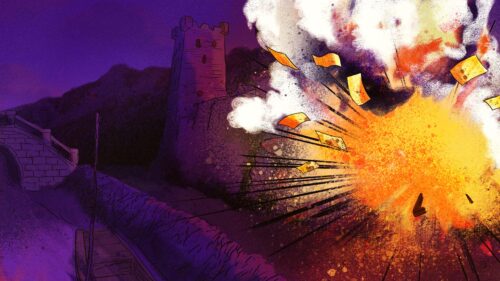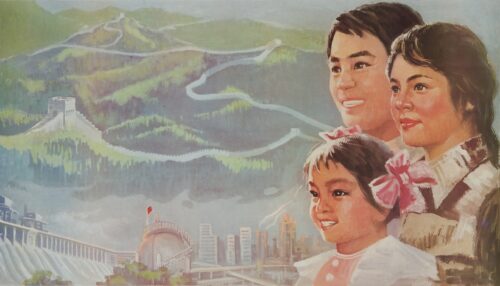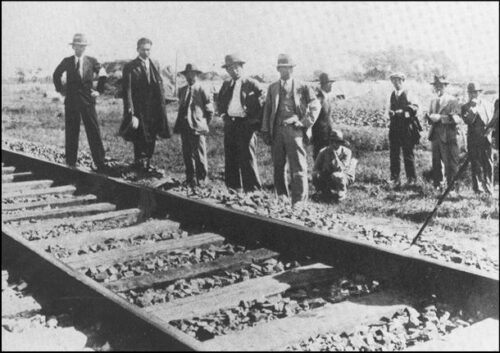This Week in China’s History: June 28, 1981
On June 28, 1981, Huá Guófēng 华国锋 resigned as chairman of the Communist Party of China, a post he had held for more than five years.
Whatever.
In American usage, anyway, “whatever” has come to be a term of dismissal, when you have given up on — or don’t care about — trying to understand or persuade someone of their point of view. Anyone who has experienced the acid “whatever” (usually accompanied by an eye roll) of a teenager has marveled at its ability to express aggressive disinterest. To be “whatevered” is to know the conversation is over.
So for a political figure to be known primarily for a doctrine labeled “the two whatevers” is telling, and in the case of Hua Guofeng, apt.
Writing about Hua for the Oxford History of Modern China, Timothy Cheek describes Hua as “distinctly uncharismatic.” Given that his role was to succeed Máo Zédōng 毛泽东, who had ruled China for four decades largely through a robust cult of personality, Hua was hardly prepared for success. Largely forgotten, does Hua live up — or down? — to his reputation as one of the world’s least competent leaders?
The title “chairman” is inextricably tied to Mao. Even today, one is as likely to see him referred to as “Chairman Mao,” and understandably so. He was chairman for more than 30 years, most of that as, formally, Chairman of the Central Committee of the Chinese Communist Party. He had other titles and other roles, but his identity as chairman gave him a position that was both vague and powerful. Coupled with the cult of personality that he crafted over the course of several decades, it gave Mao power that was hard to define and, therefore, hard to contain. Only when his policies killed tens of millions in the famine of the Great Leap Forward was he ousted from power.
Even then, his removal was temporary. Sidelined for several years in the early 1960s, Mao announced his return to political life by swimming in the Yangtze River, and within months was standing in front of a million frenzied supporters in Tiananmen Square. The Cultural Revolution brought Mao’s stature to unprecedented, and uncontrolled, heights.
Although the question would not have been appreciated at the time, succession was already of concern. Mao was already in his seventies when the Cultural Revolution kicked off, and he was hardly a model of healthy living. But as dangerous as the smoking, drinking, and constant stresses of being Chairman Mao were, it was that much more hazardous to be his designated successor. Liú Shǎoqí 刘少奇 was next in line, but he had been instrumental in Mao’s removal and was purged from power — despite being head of state. Liu died of cancer, deprived of medical care and basic dignity. In his place, Lín Biāo 林彪 — the idiosyncratic architect of Mao’s personality cult — was named heir apparent, until he died in a fiery plane crash over Mongolia, apparently fleeing after a failed coup against Mao. Zhōu Ēnlái 周恩来, China’s premier, replaced Lin as First Vice Chairman of the CCP, thus becoming the designated successor to Mao, but he predeceased Mao, dying in early 1976.
Enter Hua Guofeng.
In April 1976 — as the state was violently suppressing mourners for Zhou Enlai in Tiananmen Square — Hua was appointed First Vice Chairman of the CCP, making him the designated successor to Mao. Hua was forced quickly into service when Mao’s illness left him unable to receive visiting dignitaries. Seeking guidance, Hua found just three short notes from Mao, most famously 你辦事我放心 (nǐ bànshì wǒ fàngxīn) — “With you in charge, I am at ease.”
I find that this saying is often used un-ironically when entrusting someone with great responsibility, but if Mao was looking for someone to steward his legacy, the record shows that perhaps his confidence was misplaced.
When Mao died that September, Hua Guofeng moved quickly to consolidate his power. Even though (because?) he was Mao’s designated successor, Hua was in a political predicament, facing challenges from multiple sides. And while it is tempting to see him as a failure and a punchline, he was not without victories. He outmaneuvered the Gang of Four, the zealous Maoists led by Jiāng Qīng 江青 who sought to continue the Cultural Revolution, and had them arrested and put on trial.
Hua quickly dressed himself in the trappings of power in the CCP, concentrating formal power to an even greater degree than Mao had. Upon Mao’s death, Hua was Chairman of the Communist Party, Chairman of the Central Military Commission, and Premier of the People’s Republic.
But though he held formal power, Hua had little support beneath the surface, in part because his power was built on a fundamental contradiction. He opposed the Gang of Four, but wrapped himself in Mao’s mantle. In February, the People’s Daily published an editorial endorsing the policy of the two whatevers: “We will resolutely uphold whatever policy decisions Chairman Mao made, and unswervingly follow whatever instructions Chairman Mao gave.” Hua identified himself as the head of this “whateverist” faction in the government with a facile “WWCMD” attitude. Hua had defanged the radical wing of the movement by bringing down the Gang of Four, yet had publicly committed to continuing Mao’s policies, leaving him an impossibly narrow path to power. Meanwhile, forces led by Dèng Xiǎopíng 邓小平 opposed the extremism and dysfunction of the Cultural Revolution and worked to rebuild the government from within. (The story of this bold and fragile enterprise is masterfully told in Julian Gewirtz’s new book, Never Turn Back: China and the Forbidden History of the 1980s.)
To his credit, writes historian Joseph Torigian, Hua remained committed to principles of collective leadership, and rather than rely on his titles to fight for power, Hua responded to the will of collective leadership. “Hua’s tenure,” Torigian writes in his book Prestige, Manipulation and Coercion, “was in fact a golden era of collective leadership.” Unable either to wield personal power or to build consensus, Hua was doomed.
Defeated, he resigned his position as chairman in June 1981, though he had wielded little power for several years. In a speech in August, Deng Xiaoping announced that Hua would be stepping down as premier. Filling the void would be a new generation of leaders, including Hú Yàobāng 胡耀邦 and Zhào Zǐyáng 赵紫阳. A hope for reform and openness.
Whatever.
Central to Deng Xiaoping’s reforms was a dismantling of the Cult of Personality and what had enabled it. The title “chairman” was eliminated in 1982 (befitting his reputation, perhaps, Hua Guofeng couldn’t even claim to be the last chairman: Hu Yaobang was the last man to hold that post). Procedures designed to limit and dilute power at the top of the party were put into place. Many of these procedures — including term limits — have been recently undone by Xí Jìnpíng 习近平 as he reestablishes the importance of personal power at the top of the Chinese government.
This Week in China’s History is a weekly column.
